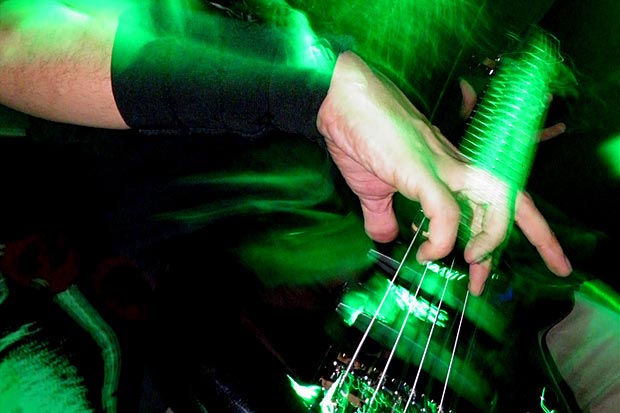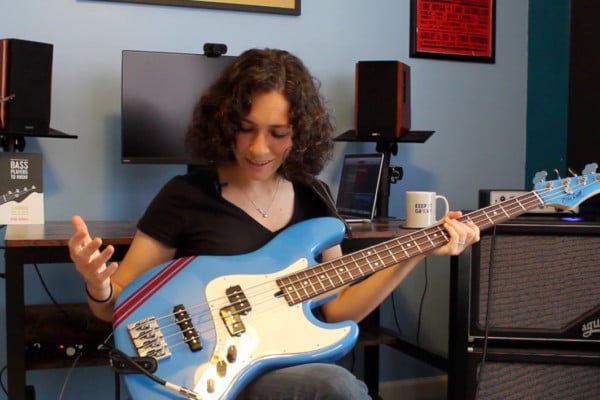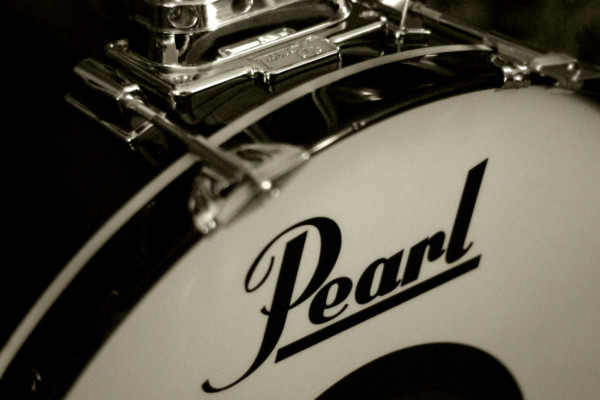Resistance to Change

Q: Why are some musicians resistant to changing gear and/or playing techniques when the player gets faced with pain, hits a technical wall or is dissatisfied with their own progress?
A: Note: I saw this question on a Facebook thread I was tagged in recently and thought it was a good one. I paraphrased it a little bit to keep it short.
I’ll start off by saying that I’ve only come across a select few people who were resistant to changing their technique. The reason was always the same: They had spent years (or decades) doing something one way, and the effort required to change the muscle memory was more than they were willing to expend. These were also hobbyist students, not people looking to take the world by storm. I find that most musicians that have their eye on being as good as they can possibly become tend to be quite open to exploring alternate ways of doing things, correcting past mistakes, exploring other gear, instruments and generally just being much more willing to accept their self-imposed limitations and work hard to overcome them.
One thing I do come across (and something that I was guilty of myself, as a young player) is becoming obsessed with a certain brand of instrument, certain pedal, amp, etc. Always feeling like if I had that thing, I would get the sound I want and be able to play better because of it.
This is a fallacy. This fallacy made itself known to me over the course of a few choice meetings where I got to play that actual instrument of one bass hero or another. I sounded nothing like them on the instrument, and in fact, each time the basses were really awkward for me to play because the were set up so differently than mine. The one thing I learned from that experience was how much the setup of my instrument could really impact the sound, and how I physically bonded with the instrument.
This caused me to start experimenting with my instrument with string height, pickup height, string type (steel, nickel, flats, and so on) and eventually scale length. I found that each of these factors had a huge impact on how the instrument felt and sounded. It seems obvious but until you know, you don’t know.
These explorations also made me more in touch with my instrument. I understood it on a more fundamental level. I really got inside of tone and how my setup played a role. It also got me exploring how my touch on the instrument played a role. I realized that there are a wealth of tones available without changing a thing beyond the way my plucking and fretting hands interacted with the instrument.
But, let’s get back to the actual question. Here’s an example of what was being discussed on the thread. I had a student who was very much into Anthony Jackson (who isn’t, really?) He got as obsessed with the purity of sound and materials and wound up buying an early Fodera Anthony Jackson model. I can’t remember if it was 36″ or 37″ scale length, but it was loooooong. And the string spacing was incredibly wide. Now, I know that this plays a bit role in the “piano-like” clarity of Anthony’s tone but the bass was completely unplayable in my hands. I mean, I couldn’t play even the simplest bass lines with any real conviction. I sounded like I was 10 again. And the student was developing hand and shoulder issues because of the instrument. In short, he was hurting himself to try and play the bass that he thought he should be playing. He was not a big guy with long arms and long fingers. The bass was forcing him to keep his fretting hand jacked far off to the side at a weird angle, and he had trouble navigating the fretboard because he had to stretch his fingers so much. We spoke at length about physiology and being aware of the position, of your body, tension and how the instrument and your body interact. I think he already had a suspicion that the bass just wasn’t going to work for him, and after I had him play a few of my personal basses at the house, he wound up selling the instrument and buying a much less expensive bass to play until he discovered what it was that would feel the best to him. He wound up buying a used custom bass with a 34″ scale length and narrower spacing, and he’s sounding better than ever!
I also know musicians who lug around ridiculous amounts of gear (full 8 space racks for a bass player at a bar gig). I’m not here to judge, and I know that feeling comfortable and trusting in your rig goes a long way toward playing comfortably, but I always think to myself, “man, they’re going to blow something out for no good reason” as I imagine them shuffling the gear, load after load, in and out of clubs.
That might have sounded snarky or judgmental along the lines of “Jaco only used 4 strings,” and I’m not saying “Bona sounded good with a Walter Woods head and nothing else” but, just as efficient technique and the right instrument can go a long way towards playing well and healthily, having an efficient set up goes a long way towards not hurting yourself before or after the gig. We have the technology. We even have tube pre-amps in a small box or pedal that you can put in front of a 4-pound digital head, so you can still get that “tube sound.” Think wisely about what you realistically need and want to carry to the gig. 16-band parametric EQ’s are great for front of house engineers, but you just don’t need that much tweak-ability to get a good stage sound. If anything, it can distract you from what you’re really there to do.
My only real point here is that we all do ourselves some good on at least one level if we fully explore our physiology and how we interact with our instruments. We also need to minimize the strain on our bodies when playing, practicing or gigging. Be mindful, work with a teacher who has some awareness in this arena and explore how your body works in relation to your instrument. Some colleges even offer “body mapping” classes specifically related to musicians.
A quick Google search brought up this page, which seems like a good place to start to explore body-mapping.
I never had any classes like that, but I was made aware of the position of my body early on because I had good teachers. Proper technique was built into my DNA from the get-go (thank you Reggie Hamilton and Andy Lalasis!)
If something hurts, stop what you are doing. It’s natural for hands to cramp, blisters to form and your arms and/or fingers to get sore when you first start really building the muscle memory. It’s important to stop and rest. Never play through the pain. It’s also important to realize when there is something more serious happening and if something feels more serious than natural usage, see a specialist of some kind. Sports or musician focused doctors exist.
There’s a physician (and bassist) in the Chicago area who wrote a great book about injury prevention specifically for bassists. Check out Dr. Randall Kertz’s The Bassist’s Guide to Injury Management, Prevention and Better Health. I recommend it to anybody experiencing any issues or who just wants to become more aware of they bodies and it’s relationship to your bass. [Editor’s note: check out Dr. Kertz’s 6-part series here on No Treble as well.]
Readers: Have any of you had to deal with breaking bad habits or being forced to change the way you play due to injury? How did you manage? What changes did you make? Please share in the comments.
Have a question for Damian Erskine? Send it to [email protected]. Check out Damian’s instructional books, Right Hand Drive and The Improviser’s Path.



